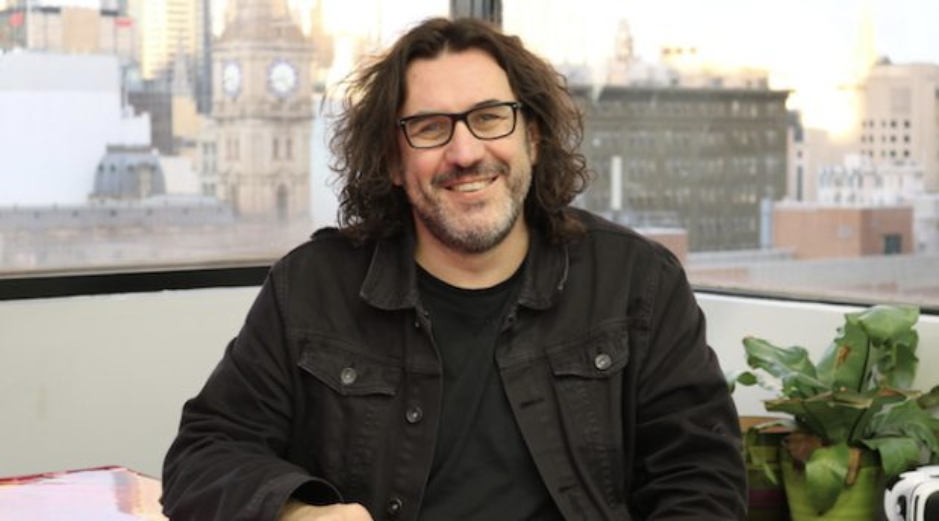
Here’s Why It’s Not a Good Idea to Listen to Consumers

Adam Ferrier breaks down the walls, abolishes definitions, challenges conventions and re-creates a worldview that is backed by analysis, science and logic. Yet, it has the essence of that spark – or magic if you will – that permeates the consequences of what he sets in motion. Is he a scientist? An alchemist aspiring to turn lead into gold? Or a creative maverick painting his own Picasso brushstrokes? Perhaps all…
As a consumer psychologist, brand strategist, ad creative and business owner, Adam’s multidisciplinary background led him to start an agency that disrupts the typical agency model. His people are called thinkers and tinkers. It breaks down the default thought processes that go into defined roles and titles and challenges people to be more versatile in meeting market demands and approaching client briefs. In an industry that talks about creativity alongside technical skills, data analytics and campaign performance metrics, being extreme is perhaps the proverbial ‘shaking of the branches’ needed to “break down the silos in peoples’ minds” as Adam puts it.
Growing up, Adam enjoyed the best of both creative and analytical nurturing with a dad who was a judge and a mum who was an artist. His entrepreneurial streak was given free rein to develop and it led him to the stock market. “I was really interested in making money, but I was also really interested in people and knowing what made them tick. So, I mentioned that to a tutor, and he said that I should be a consumer psychologist. I thought that was a fantastic idea,” says Adam.
He went on to study commerce and psychology and got his degrees, but he was sidetracked by a curiosity for forensic psychology. “There's a great saying: ‘bad men do what good men dream’. It addresses the fact that we all have a dark side, and we're all capable of doing bad things when placed in that environment,” shares Adam, who spent a few years working in a maximum-security prison while studying for his master’s degree. “I loved forensic psychology, but I knew I'd love consumer psychology too.” After a few years, Adam started working at Saatchi & Saatchi, and has since then, plotted a career of unusual proportions, backed by an authoritativeness that demands attention.
The Customer is King? Think Again
Adam says, “Don’t listen to the customer,” which goes against the grain of digging deeper into customer psyche and behaviour. He adds salt to the argument, "Some marketing people don’t necessarily know what their brands stand for. That’s because many of them are too customer-obsessed, and are spending way too much time trying to understand their customers instead of understanding what their brand stands for and how their brand should act.”
That’s a big reframe indeed, and coming from a consumer psychologist, no less. So, here’s the logic.
“If you really were thinking about the customer, the brand probably wouldn't exist. We do not need another cereal. We do not need another cool drink. There're very few brands that would actually exist. The more you listen to the consumer, the more you might be killing your brand.”

What then should a marketer do?
He says, “A marketer’s job is to minimise choice, not increase it. Make your brand synonymous with the category. So, you can have a brand that pretty much represents the category, and every time there's a need for a product or service in that category, and your brand appears, then that's pretty good marketing.”
Toss out Conventional Marketing
This requires a retake on the marketing funnel and how one typically approaches it. Adam makes reference to two successful brands: Apple and IKEA. “With Apple, I can never get all my dongles to match on my Apple devices. I'm restricted to this ecosystem that I can't get out of. And I don't understand what I'm paying for when there's in-built obsolescence. None of that is about consumer-centric thinking. It's all about business- or brand-centric thinking.
“It’s the same for IKEA. If I want to buy something from them, I have to walk around a big maze to find what I want to buy. I have to measure things myself and even assemble them myself. None of that is consumer-centric. The consumer becomes part of the brand because there's so much effort required by the consumer to purchase products from that brand,” explains Adam.
“I'd collapse the funnel and work on good ideas to get people’s awareness whilst acting towards the brand or interacting with the brand. And then scale that as much as possible,” he says. Placing “action” at the top of the funnel allows brands to go right to the heart of the matter since brand affinity happens after the action, not before it. “Once you start to interact with a brand and make a purchase, you will start to like it more.”
Adam’s experience as a consumer psychologist has provided valuable insights into consumer behaviour, and to cut across the clutter, the message is this: Consumers care very little about the brand. They care more about the category in which it belongs; if in that instant they think about what they need and they associate your brand with it, then that’s a win.
“When you understand that power imbalance, you realise how hard you've got to work to actually build something meaningful in their lives. Then, you can focus on developing strategies and ideas that counteract that,” says Adam.
For Adam, creative and strategic work that impacts the economy goes a long way. His ultimate example of a great advertising and marketing campaign comes from American Express and Small Business Saturday, which encouraged Americans to support small businesses by spending with them. “It was a massive campaign that got people to redistribute the wealth and encouraged them to shop at small businesses. I thought that was wonderful and really led beautifully into the American Express brand proposition of the American dream and how everything's achievable. It’s a really prosocial way to stimulate the economy and get people to act and interact with the brand,” says Adam.
Do No Evil Magic
With Thinkerbell, Adam wants to stay true to its purpose of “doing no evil magic”, and continuing to “cultivate positive effects with social and community causes”, especially with its social cause agency D.O.A (Decade of Action). He also has a wish list for the industry, with the most important being diversity in creative talents. “We need more women and people of colour in creative agencies, especially in Australia, and I strongly believe that diversity of thought equals better creativity,” asserts Adam.
Second to that is the need to improve training for creatives, which Adam professes to be “really bad” and lacking in terms of knowledge in marketing science. While it is not necessary for creatives to be marketing scientists, a sound foundation will benefit the agencies they work for, as well as forge closer relationships with clients by better understanding their business concerns, he says.
Adam encourages creators to be “more renegade” in their talent development by hiring outsiders to join the industry. “We need to have more creative talents who see the world in a very different way.”
Just as he beats to his own measured rhythm of science and magic, Adam hopes that talents will explore the less trodden paths of unconventionality and discover ingenious solutions to tackle the challenge of brand stickiness in a crowded space. Meanwhile, his competitive spirit keeps him moving and creating. “That competitiveness sometimes breeds magic, sometimes breeds envy, and that pushes me on.”















